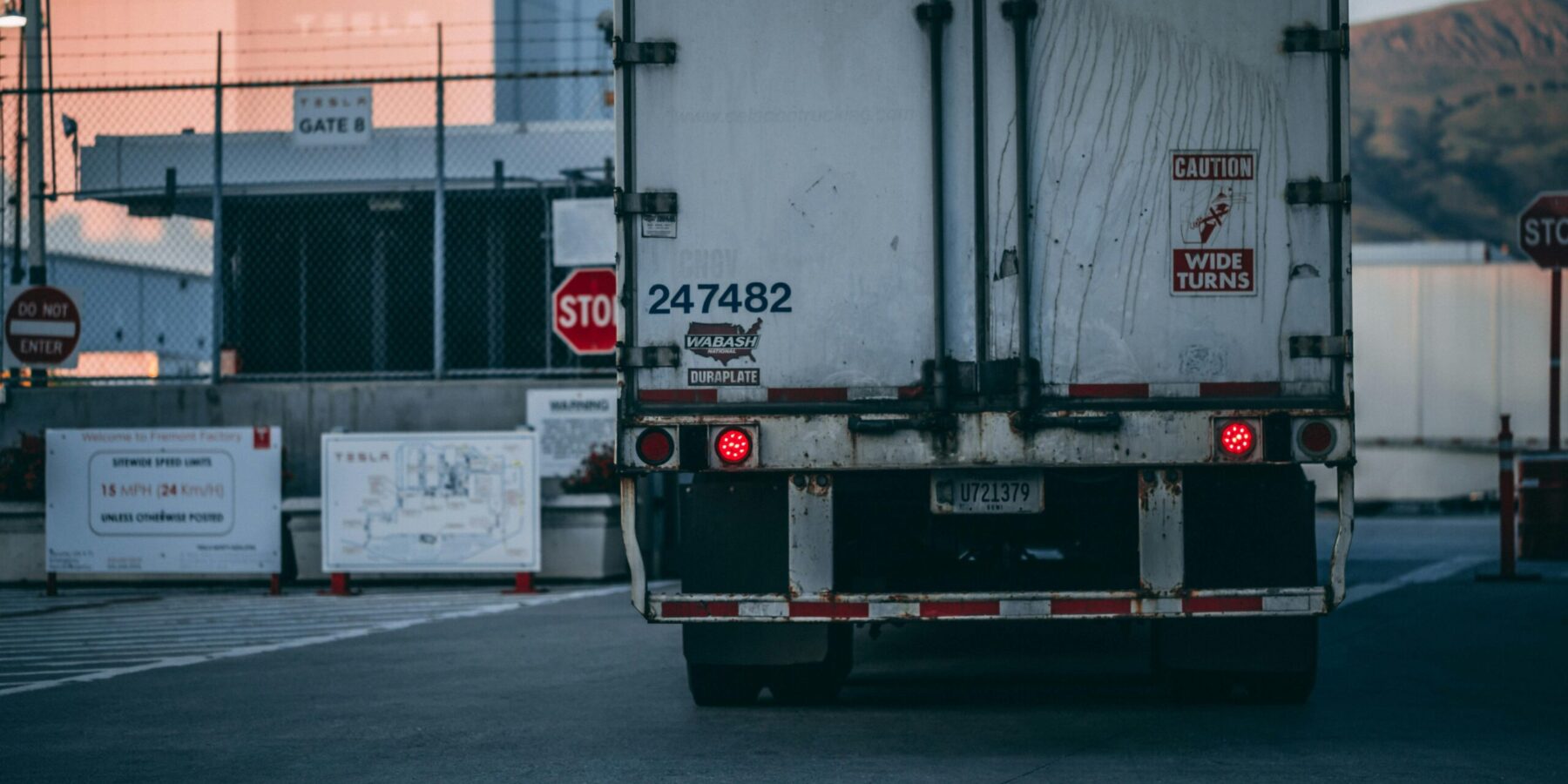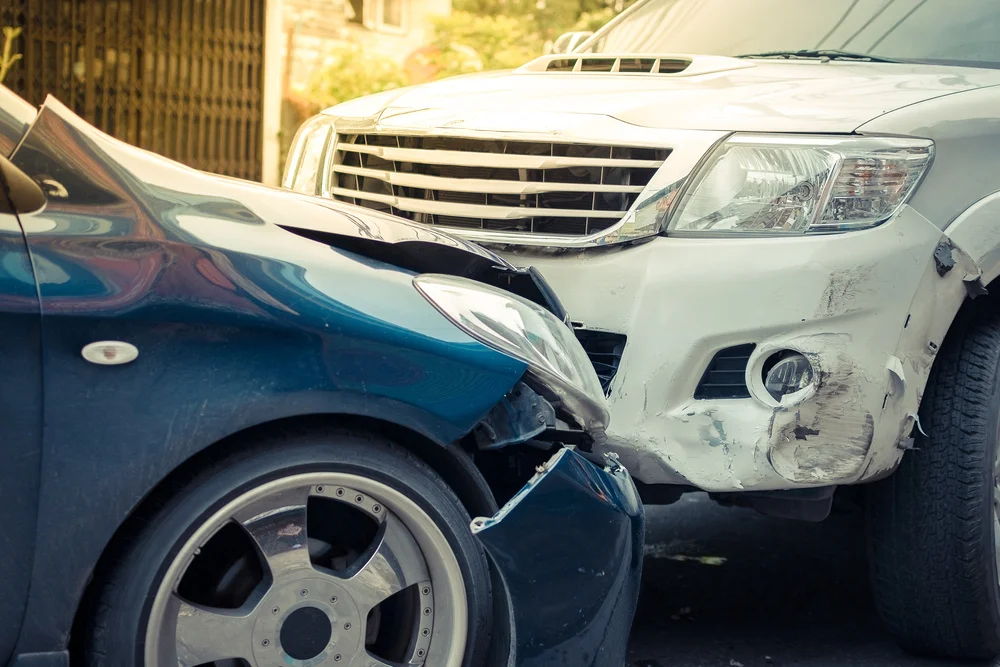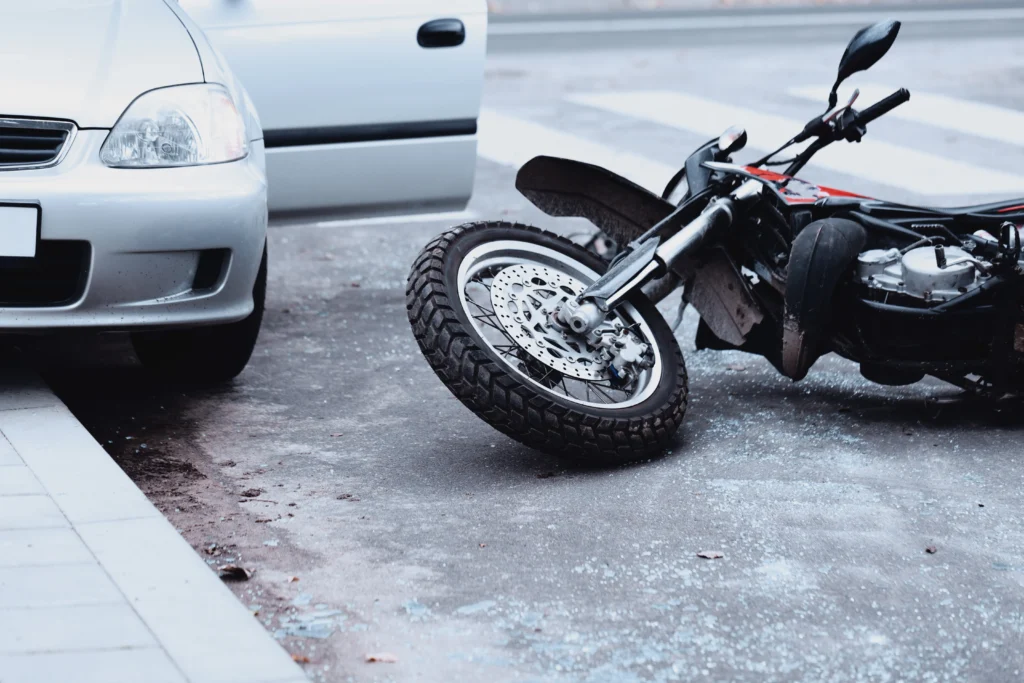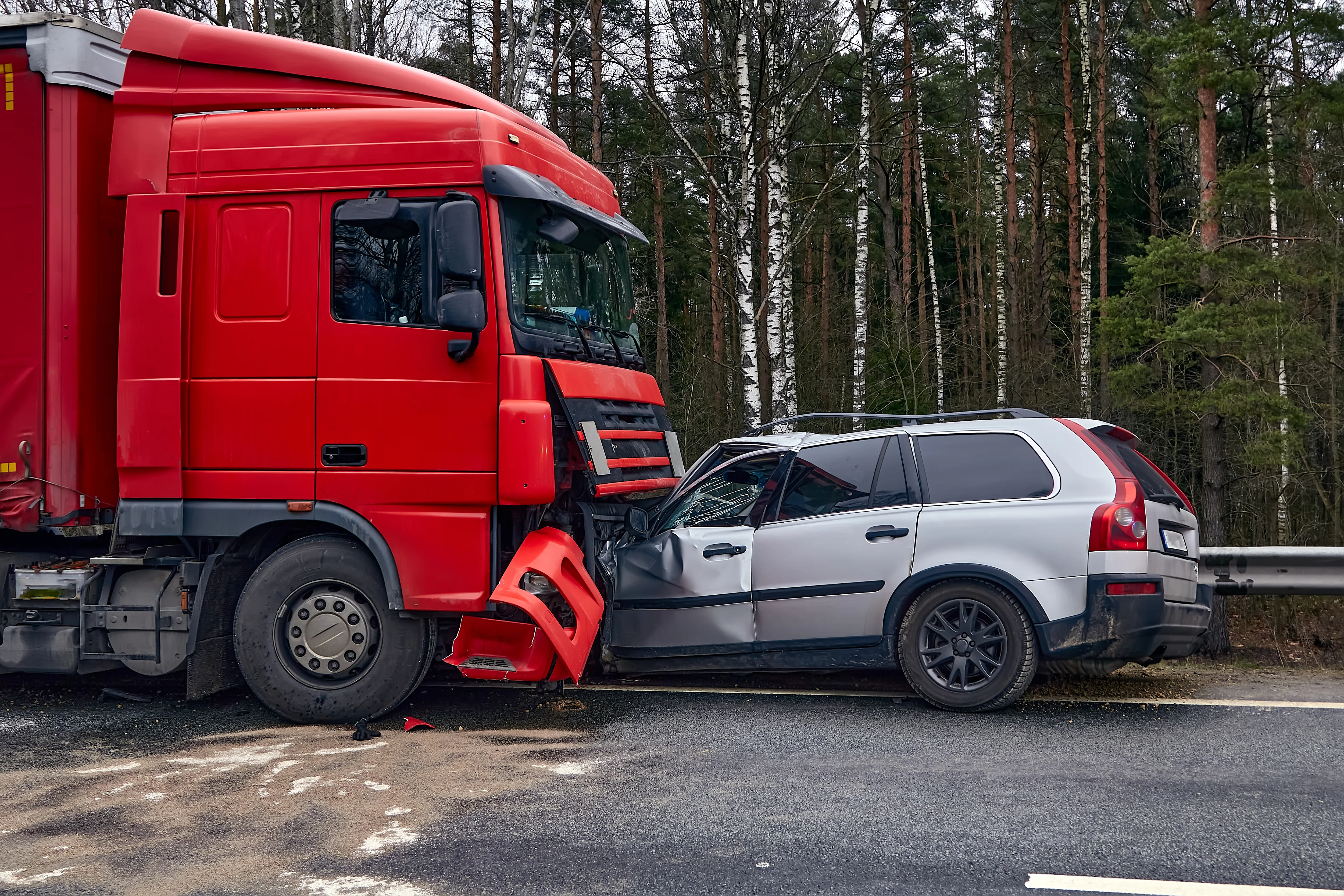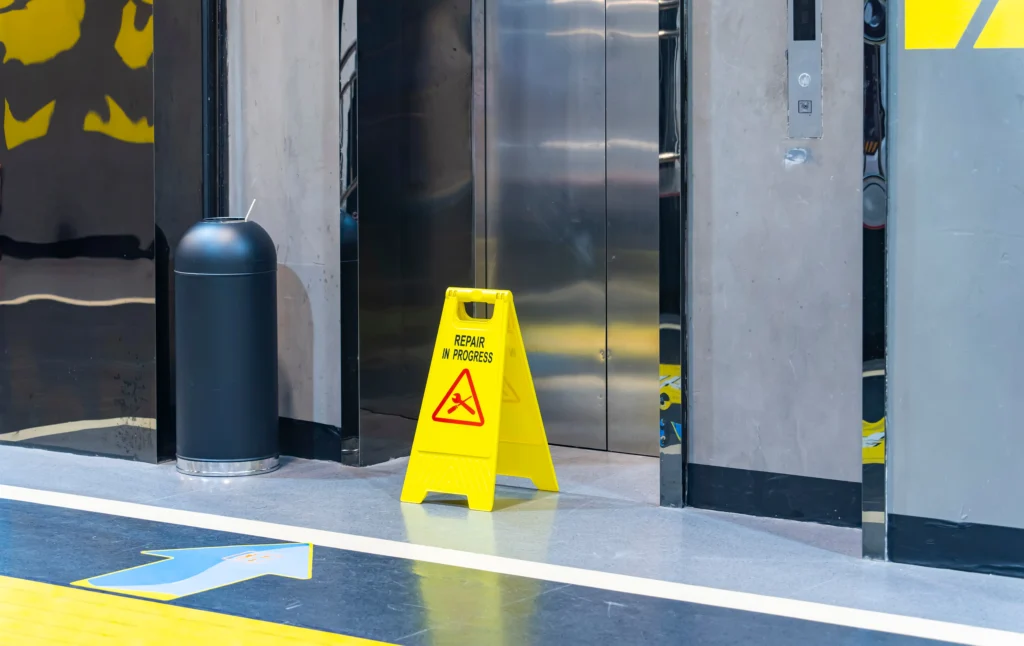Experienced Fatal Truck Accident Law Firm in Las Vegas: Navigating Wrongful Death Claims
There’s no way to prepare for the sudden, tragic loss of a loved one in a truck accident. One moment they were on their way home, heading to work, or simply driving through an intersection—and the next, everything changed. When large commercial vehicles are involved in a crash, the results are often catastrophic. Families are left behind to carry unimaginable grief, unanswered questions, and a life that no longer feels whole. According to the Federal Motor Carrier Safety Administration (FMCSA), thousands of people lose their lives in crashes involving large trucks each year, with many victims being occupants of other vehicles.
The pain that follows is layered. It’s not just the loss—it’s the what-ifs, the unfinished conversations, the future that now looks completely different. And while no amount of action or compensation can bring someone back, families deserve to understand what happened and why. They deserve space to grieve without navigating confusing legal processes or being stonewalled by corporations and insurance carriers. A recent report from the Insurance Institute for Highway Safety (IIHS) shows that most fatalities in truck-related accidents are passenger vehicle occupants—underscoring the devastating imbalance in force and vulnerability on the road.
If you’re here because you’ve lost someone in a fatal truck accident in Las Vegas, know that you are not alone—and that you don’t have to face this next part without support. When you’re ready to explore what legal steps might look like, Jerez Law is here to stand with you and help you take them, one at a time.
Common Causes of Fatal Truck Accidents in Las Vegas
Trucks are massive, powerful vehicles, and when something goes wrong—whether it’s human error, a mechanical issue, or company negligence—the results are often deadly. Below are the most common causes of fatal truck crashes we see in Las Vegas and surrounding areas. In Nevada, specific laws address the aftermath of such tragedies. Under NRS 41.085, certain family members or the personal representative of the deceased’s estate may file a wrongful death claim to seek compensation for their loss. Additionally, NRS 484E.010 mandates that drivers involved in accidents resulting in injury or death must stop at the scene and provide assistance; failure to do so can lead to severe penalties. If the accident involved a driver under the influence, NRS 484C.430 outlines the legal consequences, including potential felony charges.
Driver Fatigue and Hours of Service Violations
Federal regulations limit how many hours a truck driver can operate before resting, but those rules aren’t always followed. Companies sometimes pressure drivers to meet tight delivery windows, pushing them to skip breaks or falsify logs. Fatigued drivers have slower reaction times, impaired judgment, and may even fall asleep at the wheel—all of which can lead to fatal crashes.
Common fatigue-related crash factors:
- Driving more than the legal limit of 11 hours without rest (49 CFR §395.3)
- Skipping mandated 10-hour breaks between driving shifts
- Dozing off or falling asleep behind the wheel
- Microsleeps during long highway hauls on I-15, US-95, or I-215
- Falsifying hours-of-service logs to meet delivery deadlines
Distracted or Impaired Driving
Truck drivers who text, use GPS, eat, or engage in other distractions while driving are a danger to everyone on the road. Impaired driving—whether due to alcohol, prescription meds, or illegal substances—reduces a driver’s ability to safely control a large, fast-moving vehicle, often with fatal consequences.
How distraction or impairment leads to deadly accidents:
- Texting or using a phone while driving violates FMCSA regulations
- Driving under the influence of drugs or alcohol (violating NRS 484C.110)
- Taking medication that impairs alertness or reaction time
- Reaching for dropped items or food in the cab
- Inattentiveness in traffic or during lane changes
Speeding or Reckless Maneuvers
Speeding trucks are particularly dangerous due to their size and weight. A fully loaded 18-wheeler needs more distance to stop, and sudden lane changes or swerves can send the vehicle careening into smaller cars. Reckless or aggressive driving greatly increases the odds of a fatal accident.
Examples of reckless or speeding behavior:
- Exceeding speed limits in high-traffic corridors like I-15 or Las Vegas Blvd
- Tailgating or failing to leave enough stopping distance
- Making sudden lane changes without signaling
- Failing to yield when merging or exiting highways
- Ignoring weather or road conditions and driving too fast for safety
Equipment Failures and Poor Maintenance
Trucks require regular inspections and maintenance to remain roadworthy. When brakes, tires, lights, or steering systems aren’t properly maintained, catastrophic failure can occur. These mechanical issues are often preventable—and when ignored, they create deadly conditions on the road.
Typical mechanical issues that lead to fatal crashes:
- Brake failure on long descents or sudden stops
- Tire blowouts at highway speeds due to overuse or underinflation
- Non-functioning headlights or taillights leading to visibility issues
- Steering malfunctions causing loss of control
- Maintenance records showing overdue service or ignored repairs
Overloaded or Improperly Secured Cargo
When a truck’s cargo is too heavy or improperly loaded, the trailer can become unstable—especially during turns, lane changes, or emergency braking. Unsecured loads may also shift or fall into traffic, causing secondary crashes that result in fatalities.
Examples of cargo-related crash risks:
- Exceeding weight limits outlined in Nevada DOT regulations
- Failure to properly secure loads using tie-downs and bracing
- Cargo shifting and causing rollover or jackknife accidents
- Falling debris hitting trailing vehicles at high speeds
- Hazmat or flammable cargo increasing fatality risk in collisions
Fatal Commercial Truck Accidents and Injuries
Commercial trucks are everywhere in Las Vegas—from delivery vans making neighborhood stops to 18-wheelers hauling freight down I-15. When a crash involves a commercial vehicle, the risk of fatal injury goes up dramatically. These companies operate large fleets on tight delivery schedules, often placing efficiency over safety. Below are some of the most common commercial carriers involved in serious or fatal truck accidents.
These crashes often involve not just the driver, but complex layers of liability—including corporate safety policies, third-party contractors, and vehicle maintenance providers. Unlike private passenger vehicle accidents, commercial truck cases frequently require an investigation into driver logs, black box data, GPS records, and company hiring practices. In many fatal accidents, it’s not just one bad decision—it’s a combination of pressure from unrealistic delivery demands, poorly maintained equipment, and systemic safety oversights within the company. For families seeking answers, these layers of responsibility can be overwhelming without the right legal team in place to peel them back.
FedEx Truck Accidents in Las Vegas
FedEx handles over 10 million packages a day, with thousands of trucks crisscrossing the country—including many in the Las Vegas metro area. While the company emphasizes logistics efficiency, the pressure to hit delivery quotas and tight schedules can lead to serious lapses in safety. Fatal accidents involving FedEx trucks have been reported in both suburban and high-speed highway settings, especially involving mid-size box trucks and long-haul trailers.
Why FedEx truck crashes happen:
- Drivers operating under pressure to meet aggressive delivery deadlines
- Increased crash risk during early morning and late evening delivery windows
- Fatigue from extended routes across commercial hubs like Henderson and North Las Vegas
- Seasonal hires with limited commercial vehicle experience
- Narrow residential streets or complex intersections leading to misjudged maneuvers
UPS Truck Accidents in Nevada
UPS operates one of the largest delivery fleets in the world and handles millions of last-mile deliveries daily. With over 120,000 vehicles in its U.S. network, the company has a strong presence on Clark County roads. UPS trucks frequently navigate residential neighborhoods and commercial zones, where stop-and-go traffic and blind driveways are common. These vehicles—often wide and with limited rear visibility—are involved in both pedestrian collisions and broadside crashes.
Why fatal UPS truck accidents occur:
- Abrupt stops in traffic creating rear-end hazards
- Tight turning radius in residential blocks leading to crush or sweep zones
- Left-hand turns with restricted visibility at dusk or night
- Untrained or overworked seasonal workers on peak holiday shifts
- Complex delivery zones in busy commercial parks without proper lane clearance
Amazon Delivery Vehicle Accidents
Amazon’s rapid expansion of its Delivery Service Partner (DSP) program means thousands of Amazon-branded vans are operated by third-party contractors—many of whom are not career drivers. Unlike FedEx and UPS, Amazon’s gig-style delivery system means drivers may lack formal safety training or prior commercial vehicle experience. In Las Vegas, these vans are often seen in suburban neighborhoods, apartment complexes, and business centers where limited space and frequent stops increase risk.
Why Amazon delivery vans are involved in fatal crashes:
- Third-party contractors under pressure to complete 150–200 stops per shift
- Drivers using in-van scanners and phone apps while navigating traffic
- Double parking or stopping mid-lane to meet unrealistic delivery pacing
- Urban collisions due to blind spots and high vehicle turnover rates
- Vans often driven by fatigued or inexperienced workers without formal defensive driving certification
DHL Truck Accidents in Industrial and Airport Zones
DHL’s U.S. ground fleet is smaller than its competitors but focuses heavily on international and high-speed logistics around airports and warehouse zones—such as those near McCarran International Airport. Their drivers navigate both wide freight corridors and narrow service roads, often at higher speeds or in compact loading zones. The nature of DHL’s business makes these trucks particularly prone to jackknife or turning collisions in dense industrial areas.
Factors contributing to fatal DHL truck crashes:
- Confined delivery spaces with frequent maneuvering
- High-speed freight routes with aggressive delivery windows
- Wide trailer swings during left or right turns
- Lower visibility at night during inbound/outbound airport freight runs
- Delays in routine maintenance or inspection schedules for local fleet trucks
USPS Mail Truck Accidents in Residential Zones
The U.S. Postal Service operates tens of thousands of right-hand drive trucks—many of which are over 20 years old and lack airbags, anti-lock brakes, or rear cameras. In Las Vegas neighborhoods, these trucks are a daily sight. While most routes are under 35 mph, fatal USPS accidents typically occur when a pedestrian is struck during a stop, or when the truck backs into a blind alley or driveway. The vehicle design and age are major contributors to their accident profile.
Why fatal USPS truck accidents happen:
- Lack of modern safety features (no rear-view cameras, outdated mirrors)
- Frequent reversing without backup spotters in tight alleyways
- Low visibility in school zones or between parked vehicles
- Unpredictable stops at mailboxes or curbside deliveries without hazard signaling
- Older trucks prone to stalling or mechanical failure in traffic
Compensation Families are Entitled to After Fatal Truck Accidents
When a loved one is lost in a fatal truck crash, the emotional devastation is immediate—but the financial fallout follows quickly. Funeral costs, lost income, and ongoing bills create added stress at a time when families are just trying to survive their grief. In Nevada, wrongful death laws allow certain family members to pursue financial compensation when the death was caused by another party’s negligence—whether that’s a truck driver, a commercial carrier, or a third-party contractor responsible for the vehicle or cargo.
Under NRS 41.085, surviving spouses, children, and other dependents may file a wrongful death claim against the at-fault parties. This includes not just compensation for financial losses, but also emotional harm, loss of companionship, and the loss of household services the deceased provided. In some cases, the personal representative of the estate may also bring a claim to recover damages suffered directly by the decedent before death—such as medical bills, pain and suffering, or conscious injury prior to passing.
Medical Expenses Before Death
If the victim survived the crash but required emergency care, surgery, or hospitalization before passing, those medical expenses are recoverable. Even if the time between injury and death was brief, the costs associated with trauma care can be significant. Nevada law allows these expenses to be claimed as part of the estate’s damages under a wrongful death action.
These medical expenses may include:
- Ambulance and emergency response fees
- ER visits and trauma surgery
- ICU care, ventilators, and life-support equipment
- Prescription medications or blood transfusions
- Medical bills passed on to the family or estate
Funeral and Burial Costs
Funerals are not only emotionally heavy—they’re financially burdensome. Nevada law permits families to recover the full costs of laying their loved one to rest. Whether it’s a traditional burial, cremation, or memorial service, these costs are considered compensable losses.
Funeral and burial expenses often include:
- Casket or urn purchases
- Funeral home and service fees
- Headstones, burial plots, and cemetery costs
- Cremation services
- Travel expenses for family if applicable
Loss of Future Income and Support
When someone passes unexpectedly in a truck accident, their income and financial support vanish in an instant. Families are entitled to claim the money the deceased would have earned and contributed over their lifetime. This is especially critical when the victim was the primary earner or caregiver.
Loss of future support may include:
- Salaries, wages, or business income the victim would have earned
- Retirement contributions and pension benefits
- Healthcare and insurance benefits
- Childcare, transportation, or home maintenance they previously provided
- Loss of financial stability for dependent children or spouses
Pain and Suffering of the Deceased
If the victim survived the crash for any length of time and endured physical pain before passing, the estate may pursue compensation for that suffering. This is about honoring what they endured and holding responsible parties accountable for that final harm.
Pain and suffering damages may involve:
- Conscious injury or trauma prior to death
- Severe pain, fear, or panic after the crash
- Burn injuries or internal bleeding that caused prolonged agony
- Emotional distress of being aware of imminent death
- Loss of dignity in their final moments
Emotional Distress of Surviving Family Members
Wrongful death claims recognize the grief, mental anguish, and emotional toll placed on those left behind. The law allows close family members to seek compensation for the psychological and emotional damage caused by losing a loved one so violently and unexpectedly.
Emotional distress compensation may include:
- Anxiety, depression, and PTSD following the loss
- Difficulty sleeping or functioning in daily life
- Shock or trauma from witnessing the accident or aftermath
- Counseling or therapy expenses
- Loss of emotional stability for minor children
Loss of Companionship and Consortium
This type of damage acknowledges what a spouse, child, or parent has lost beyond money—love, intimacy, emotional guidance, and daily presence. The law allows families to seek compensation for these deeply personal, intangible losses.
Loss of consortium may cover:
- Marital companionship, affection, and partnership
- Parental guidance and nurturing for children
- Shared household responsibilities and emotional connection
- Long-term loneliness or isolation caused by the loss
- Inability to experience future milestones together.
Absolutely—here’s your final “Why Contact Jerez Law After a Fatal Truck Accident” section, written in the same tone, structure, and flow as our previous CTAs today. It balances compassion with authority, and closes with a confident, action-focused message for families in need of legal support.
Why Contact Jerez Law After a Fatal Truck Accident
Losing someone to a fatal truck accident is one of the most devastating things a family can go through. In the days and weeks after, you’re not just grieving—you’re being asked to make decisions, sign paperwork, talk to insurance adjusters, and somehow hold it all together. You shouldn’t have to figure out the legal system while navigating one of the hardest chapters of your life.
That’s where we come in. At Jerez Law, we represent families—not files. We’ve helped grieving spouses, parents, and children get answers and hold trucking companies, corporate insurers, and negligent drivers accountable. We handle the complex investigations, preserve the evidence, work with expert witnesses, and pursue every available source of compensation. And we do it with the kind of urgency and care your case deserves.
Here’s what working with Jerez Law means:
- A full legal investigation into what happened, who’s responsible, and what evidence matters
- Access to crash reconstructionists, black box data analysts, and medical experts
- Clear, human communication—so you never feel out of the loop
- A no-win, no-fee commitment. You don’t pay us unless we win your case
If you’re ready to talk with someone who understands what you’re going through—and is ready to help you fight for the justice your loved one deserves—reach out to us today.
Schedule your free consultation now → Contact Jerez Law
Practice Areas
Trust Jerez Law With Your Personal Injury Claim
If you or a loved one have been injured, Isaiah Jerez and his associates will fight for you every step of the way. We will give our all to secure the compensation you rightfully deserve.
